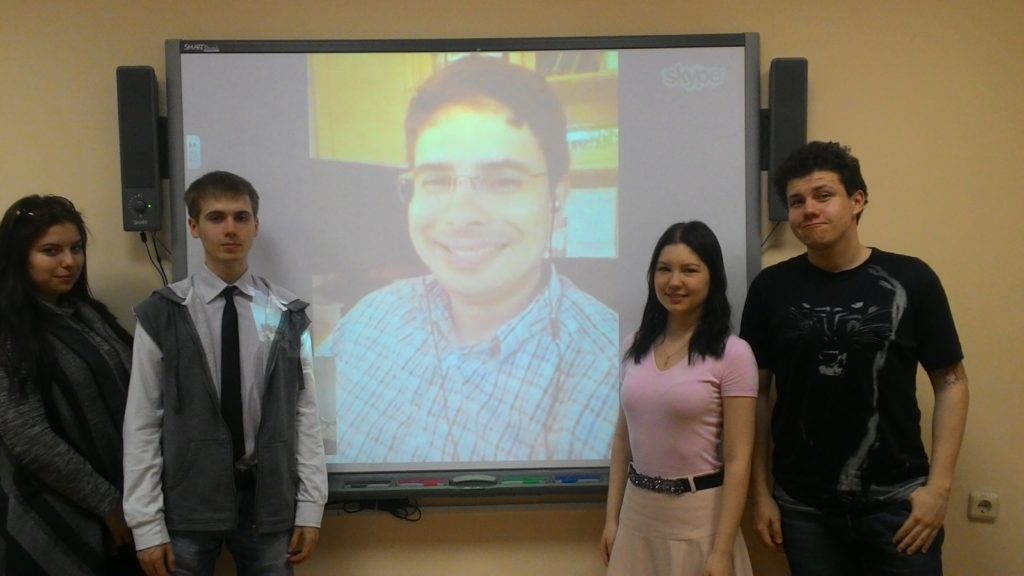RJ GAUDET & ASSOCIATES L.L.C.
"Let us realize the arc of the moral universe is long but it bends toward justice."
Dr. Martin Luther King, Jr.
Archive for April, 2016
Skype presentation on American class actions to Russian law students

Russian law students at Udmurtia State University who attended Robert Gaudet’s lecture on massive justice through American class actions
On April 29, 2016, Robert J. Gaudet, Jr. made a presentation by Skype to law students at Udmurtia State University in Izhevsk, Russia. The Skype sessions are part of a six-year long program that is organized by Udmurtia State University in cooperation with the American Bar Association Section of International Law International Human Rights Committee (“IHRC”) which Mr. Gaudet used to co-chair for two years and for which he now serves as a member.
Mr. Gaudet’s spoke about American class actions. There are no procedures for class actions in Russia so it was a novelty that one of the students had previously heard about. Based on developments in Europe, where most countries did not have class actions 10 years ago but roughly half the countries now have class action procedures (albeit rarely used), Mr. Gaudet predicted that class actions would come to Russia within 10 to 30 years. “They’re a good idea,” Mr. Gaudet explained in his presentation.
In a discussion during the presentation, Mr. Gaudet commented on the recent death of the musician Prince who has been discussed in the American media over the past week as a “worldwide icon.” As it turns out, he is not an icon – at least with the new generation of twenty somethings and teens – in Izhevsk, Russia. None of the students in Mr. Gaudet’s presentation had heard of the artist formerly known as Prince. One student had heard of Prince’s former girlfriend, Kim Bassinger. They were aware of Charlize Theron, “of course” they said, who appeared in a movie about class actions called “North Country” that Mr. Gaudet mentioned during the presentation.
Mr. Gaudet was prepared for his session by Andrew Solis, a law student at Southern Illinois University, who has been organizing presentations with mostly Illinois lawyers over the past year under the guidance of his Dean Cynthia Fountaine who is a member of the IHRC and has shown sustained commitment to the Russia Skype program over the past few years, enabling it to continue. Past organizational support was provided by IHRC member Anna Caldwell.
The Russian Skype program is an invaluable way to build bridges between cultures and legal regimes. Izhevsk is roughly 14 hours away, by train, from Moscow, and it’s the site where tanks and rifles were manufactured during the Cold War. General Kalashnikov, who invented the famous rifle by his name, lived and was based in Izhevsk until his death a couple of years ago. Therefore, it is especially significant that the IHRC and the law department at Udmurtia State University have sustained this program over the past six years to develop bonds of mutual understanding, trust, and education between two countries that are often seen, in headlines, as being in geo-political and military tension with each other.
American lawyers who wish to make a presentation to the law students in Izvevsk may contact Mr. Gaudet, Mr. Solis, or the IHRC leadership for more information. It could be a short presentation of 20 to 30 minutes with a list of vocabulary that is sent to the organizers in advance. Time is left for discussion and a question-and-answer period. Presentations generally last, in total, one hour. CLE credit may be available for preparation and lecture time although lawyers will have to seek CLE credit through their respective bar associations.


